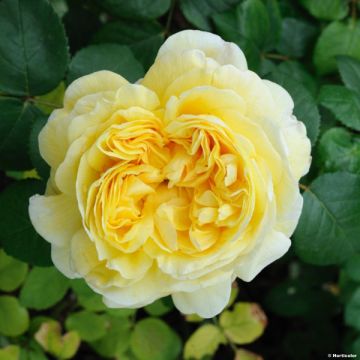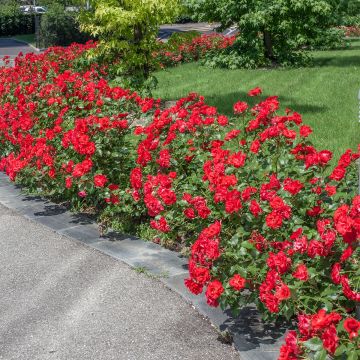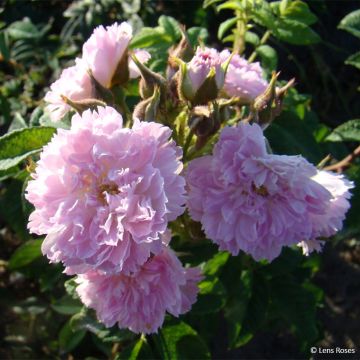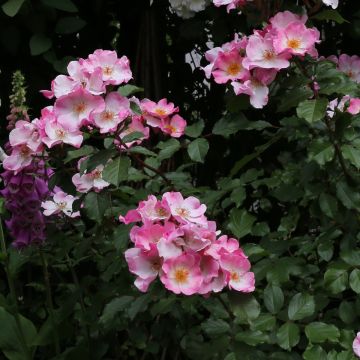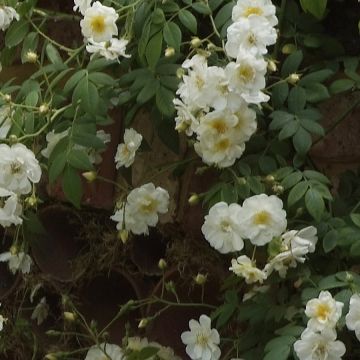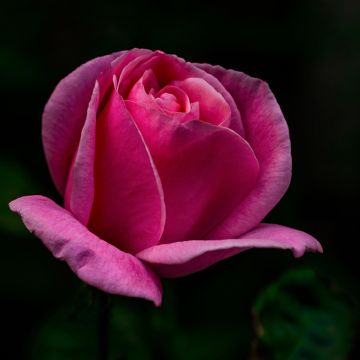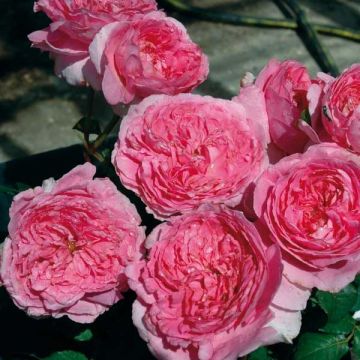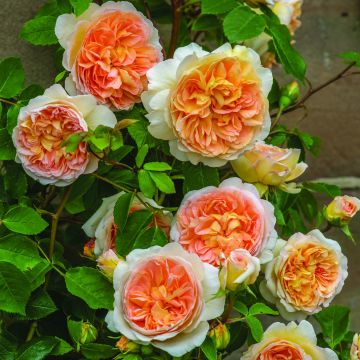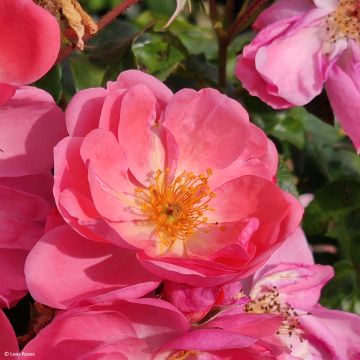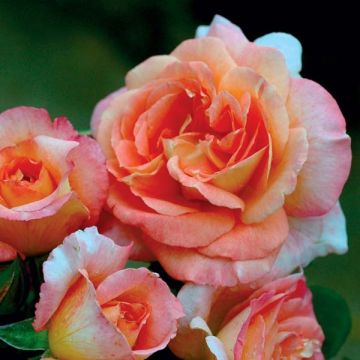Shipping country and language
Your country of residence may be:
Your country of residence is:
For a better user experience on our website, you can select:
Your shipping country:
-
Andorra
-
Austria
-
Belgium
-
Bulgaria
-
Canada
-
Chile
-
Croatia
-
Cyprus
-
Czechia
-
Denmark
-
Estonia
-
Finland
-
France
-
Germany
-
Greece
-
Hungary
-
Iceland
-
Ireland
-
Italy
-
Latvia
-
Lithuania
-
Luxembourg
-
Malta
-
Monaco
-
Netherlands
-
Poland
-
Portugal
-
Romania
-
Slovakia
-
Slovenia
-
Spain
-
Sweden
-
Switzerland
-
United Kingdom
We only deliver seed and bulb products to your country. If you add other products to your basket, they cannot be shipped.
Language:
-
French
-
German
-
Spanish
-
English
-
Italian
My Account
Hello
My wish lists
Log in / Register
Existing customer?
New customer?
Create an account to track your orders, access our customer service and, if you wish, make the most of our upcoming offers.
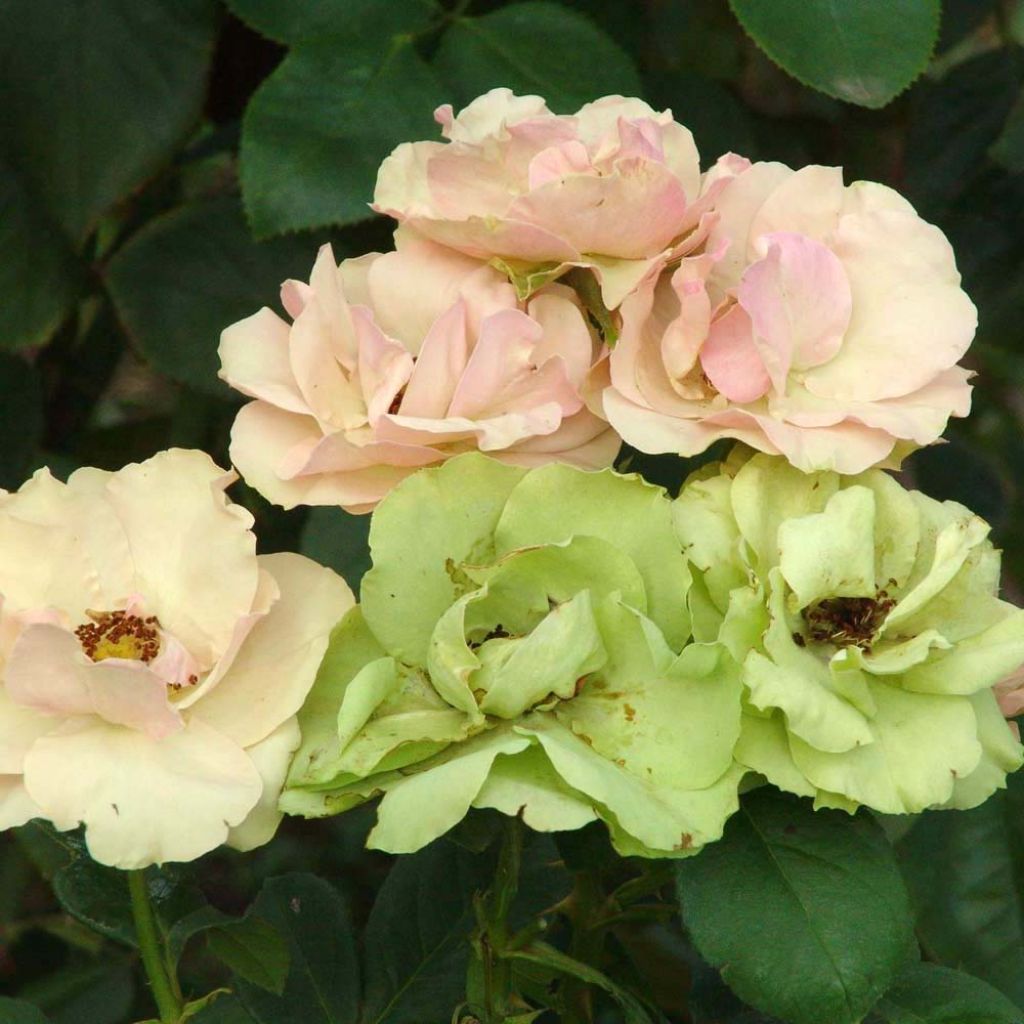

Rosier à fleurs groupées Greensleeves
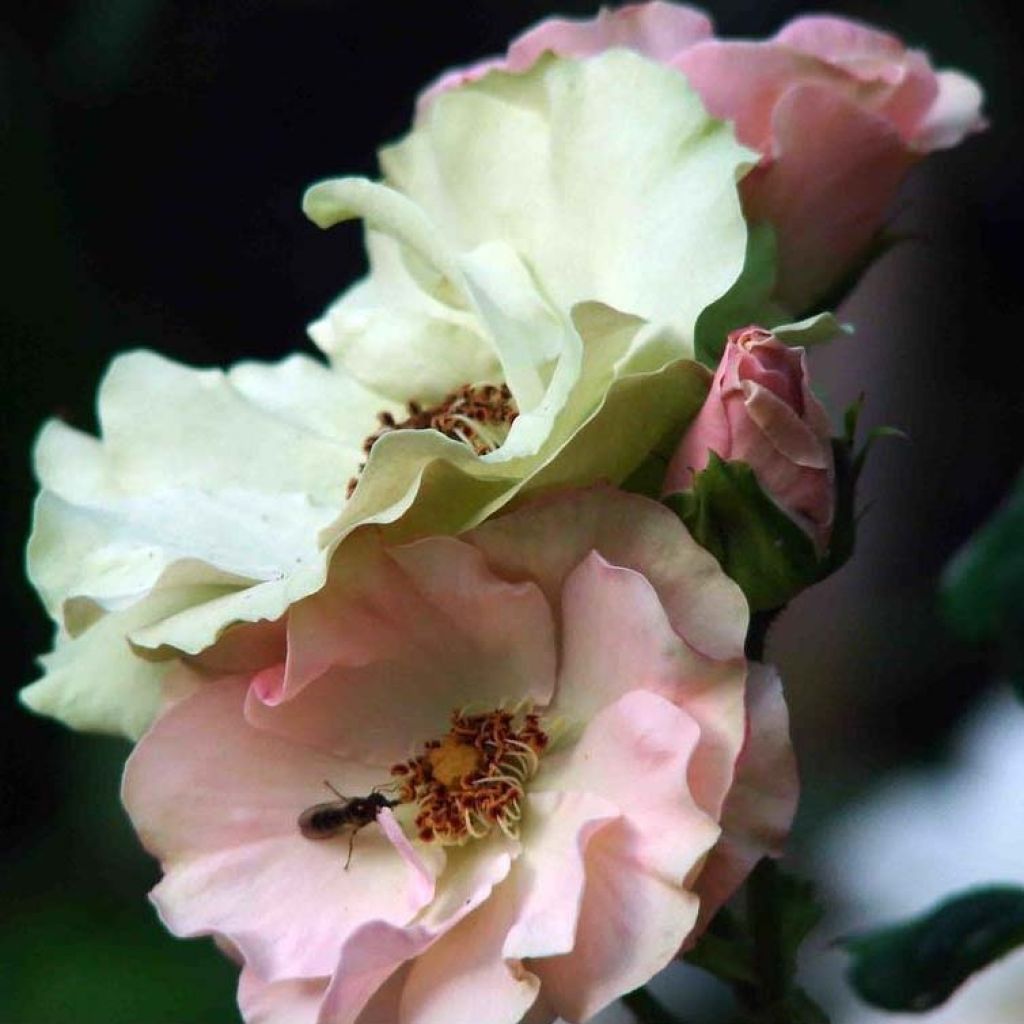

Rosier à fleurs groupées Greensleeves
Rosa x floribunda Greensleeves
Rosa x floribunda Greensleeves 'Harlenten'
Floribunda Rose
Order in the next for dispatch today!
Dispatch by letter from €3.90.
Delivery charge from €5.90 Oversize package delivery charge from €6.90.
More information
This item is not available in your country.
Schedule delivery date,
and select date in basket
This plant carries a 24 months recovery warranty
More information
We guarantee the quality of our plants for a full growing cycle, and will replace at our expense any plant that fails to recover under normal climatic and planting conditions.
From €5.90 for pickup delivery and €6.90 for home delivery
Express home delivery from €8.90.
From €5.90 for pickup delivery and €6.90 for home delivery
Express home delivery from €8.90.
Does this plant fit my garden?
Set up your Plantfit profile →
Description
The 'Greensleeves' Rose is a delightfully unique variety, rarely offered for sale. This creation, credited to the English rose grower Darkness, produces successive waves of bouquets with unusual, changing, semi-double flowers that are as light as butterflies. They open with a very soft old pink hue, then quickly fade to a pale white-cream with hints of pale yellow, subtly tinged with chartreuse green, and sometimes speckled with pink-purple along the edges. This variety is not very large, but forms a lovely flowering bush from June to October, even in hot climates, and its beautiful dark green foliage is resistant to rose diseases. Stand out by adopting it in your garden or on your terrace, in a carefully chosen large pot!
The clustered-flowered rose 'Greensleeves' is part of the floribunda roses, obtained through the hybridisation of polyantha roses and tea roses. These plants are characterised by their long and abundant flowering, in the form of clusters of larger flowers than those of polyantha roses.
'Greensleeves' forms a small bush that is approximately 75 cm (30in) tall and 1 m (3ft) wide, with a slightly spreading and flexible habit, good vigour, and abundant, healthy foliage that is slightly glossy and dark green. Its flowering period is long, lasting 4 to 5 months, in bloom from June to October. This bush produces medium-sized roses (6 cm (2in) in diameter), in the form of semi-double, informal corollas composed of 8 to 15 slightly frizzled petals. They are gathered in generous terminal clusters. The tightly closed buds, with a salmon pink color tinged with yellow, open into roses with a casual appearance, slightly fragrant. The petals quickly turn white-cream infused with a hint of anise green, then become white with a pink-purple reverse. Some flowers have small pink-purple spots along the edges. The stamens, yellow-green when fully open, quickly take on a grey-brown hue. On the clusters of flowers at different stages of ripeness, all these shades mix, creating a bouquet with unusual and particularly refined pastel hues. It should be noted that this rose, hardy up to -15°C (5°F), is often recommended for warm regions (e.g. California).
The 'Greensleeves' Rose, abundantly flowering and devilishly romantic, is particularly well-suited for cultivation in pots, but also thrives in flowerbeds, in the company of perennials such as nepetas, perennial geraniums, valerians, and foxgloves. Floribunda roses can be used to create beautiful small hedges, planted in mixtures at the edge of the terrace or in small shrub beds. Pair them with abelias, perovskias, or caryopteris, for example. They are good companions for phlox paniculata and tall baby's breath. They can also be planted in groups of 5 as standalone plants in a small garden; surrounded by a border of bear's breeches, irises, mulleins, or carnations, they will form a very beautiful and interesting flower mass throughout the entire season. The flowers of Greensleeves are wonderful in bouquets, accompanied by white or blue bellflowers and inflorescences of feather grass, for example.
Breeder: Harkness (UK) in 1980.
Report an error about the product description
Rosa x floribunda Greensleeves in pictures
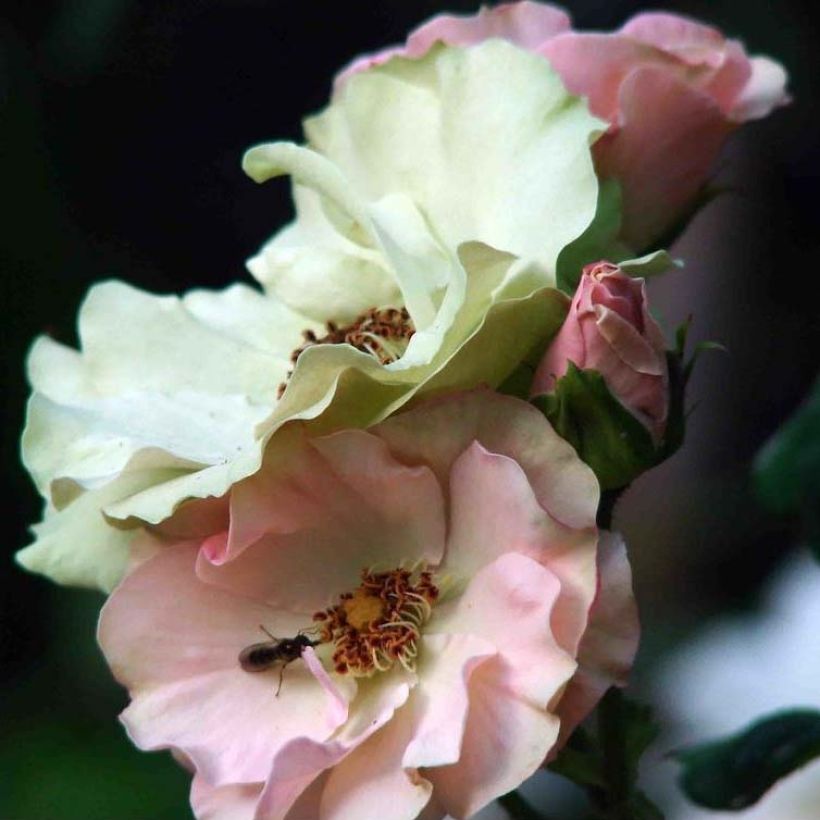

Plant habit
Flowering
Foliage
Botanical data
Rosa
x floribunda
Greensleeves 'Harlenten'
Rosaceae
Floribunda Rose
Cultivar or hybrid
Other Roses A to Z
Planting and care
Plant this floribunda rose from November to March, in ordinary, well-loosened and free-draining soil. Roses prefer clayey soils, rather heavy than light. In soil that is too sandy, too compact or too dry in summer, it is preferable to bury compost, decomposed manure or leaf-mould at the bottom of the planting hole. However, this rose dreads waterlogged soils in winter. Place it in a sunny position, at most in partial shade. Roses are greedy plants, a specific rose fertiliser application will be beneficial when the foliage emerges, then regularly during the entire flowering period.
To encourage re-blooming, regularly remove faded flowers. Floribunda rose varieties are more vigorous and floriferous than large-flowered rose varieties. Therefore, the stems should be pruned to about a quarter of their length (4 to 6 buds from the base of the stem) at the end of winter. Always prune above an outward-facing bud, so that the bush thickens and the branches do not become tangled in the centre of the shrub.
Planting period
Intended location
Care
This item has not been reviewed yet - be the first to leave a review about it.
Fragrant Roses
Haven't found what you were looking for?
Hardiness is the lowest winter temperature a plant can endure without suffering serious damage or even dying. However, hardiness is affected by location (a sheltered area, such as a patio), protection (winter cover) and soil type (hardiness is improved by well-drained soil).

Photo Sharing Terms & Conditions
In order to encourage gardeners to interact and share their experiences, Promesse de fleurs offers various media enabling content to be uploaded onto its Site - in particular via the ‘Photo sharing’ module.
The User agrees to refrain from:
- Posting any content that is illegal, prejudicial, insulting, racist, inciteful to hatred, revisionist, contrary to public decency, that infringes on privacy or on the privacy rights of third parties, in particular the publicity rights of persons and goods, intellectual property rights, or the right to privacy.
- Submitting content on behalf of a third party;
- Impersonate the identity of a third party and/or publish any personal information about a third party;
In general, the User undertakes to refrain from any unethical behaviour.
All Content (in particular text, comments, files, images, photos, videos, creative works, etc.), which may be subject to property or intellectual property rights, image or other private rights, shall remain the property of the User, subject to the limited rights granted by the terms of the licence granted by Promesse de fleurs as stated below. Users are at liberty to publish or not to publish such Content on the Site, notably via the ‘Photo Sharing’ facility, and accept that this Content shall be made public and freely accessible, notably on the Internet.
Users further acknowledge, undertake to have ,and guarantee that they hold all necessary rights and permissions to publish such material on the Site, in particular with regard to the legislation in force pertaining to any privacy, property, intellectual property, image, or contractual rights, or rights of any other nature. By publishing such Content on the Site, Users acknowledge accepting full liability as publishers of the Content within the meaning of the law, and grant Promesse de fleurs, free of charge, an inclusive, worldwide licence for the said Content for the entire duration of its publication, including all reproduction, representation, up/downloading, displaying, performing, transmission, and storage rights.
Users also grant permission for their name to be linked to the Content and accept that this link may not always be made available.
By engaging in posting material, Users consent to their Content becoming automatically accessible on the Internet, in particular on other sites and/or blogs and/or web pages of the Promesse de fleurs site, including in particular social pages and the Promesse de fleurs catalogue.
Users may secure the removal of entrusted content free of charge by issuing a simple request via our contact form.
The flowering period indicated on our website applies to countries and regions located in USDA zone 8 (France, the United Kingdom, Ireland, the Netherlands, etc.)
It will vary according to where you live:
- In zones 9 to 10 (Italy, Spain, Greece, etc.), flowering will occur about 2 to 4 weeks earlier.
- In zones 6 to 7 (Germany, Poland, Slovenia, and lower mountainous regions), flowering will be delayed by 2 to 3 weeks.
- In zone 5 (Central Europe, Scandinavia), blooming will be delayed by 3 to 5 weeks.
In temperate climates, pruning of spring-flowering shrubs (forsythia, spireas, etc.) should be done just after flowering.
Pruning of summer-flowering shrubs (Indian Lilac, Perovskia, etc.) can be done in winter or spring.
In cold regions as well as with frost-sensitive plants, avoid pruning too early when severe frosts may still occur.
The planting period indicated on our website applies to countries and regions located in USDA zone 8 (France, United Kingdom, Ireland, Netherlands).
It will vary according to where you live:
- In Mediterranean zones (Marseille, Madrid, Milan, etc.), autumn and winter are the best planting periods.
- In continental zones (Strasbourg, Munich, Vienna, etc.), delay planting by 2 to 3 weeks in spring and bring it forward by 2 to 4 weeks in autumn.
- In mountainous regions (the Alps, Pyrenees, Carpathians, etc.), it is best to plant in late spring (May-June) or late summer (August-September).
The harvesting period indicated on our website applies to countries and regions in USDA zone 8 (France, England, Ireland, the Netherlands).
In colder areas (Scandinavia, Poland, Austria...) fruit and vegetable harvests are likely to be delayed by 3-4 weeks.
In warmer areas (Italy, Spain, Greece, etc.), harvesting will probably take place earlier, depending on weather conditions.
The sowing periods indicated on our website apply to countries and regions within USDA Zone 8 (France, UK, Ireland, Netherlands).
In colder areas (Scandinavia, Poland, Austria...), delay any outdoor sowing by 3-4 weeks, or sow under glass.
In warmer climes (Italy, Spain, Greece, etc.), bring outdoor sowing forward by a few weeks.
